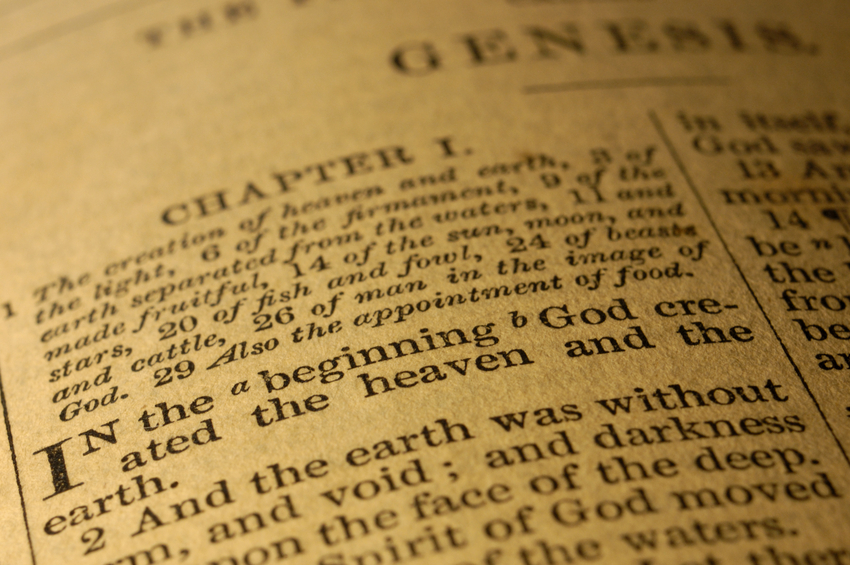2 Timothy 2:15 commands us to “Study to shew thyself approved unto God, a workman that needeth not to be ashamed, rightly dividing the word of truth.” This is not only the only verse in the Bible that commands us to STUDY the Bible, but it is also the only verse that also concesely provides us with the METHOD of study.
The first thing we see about this method is that it is negative: we are to dividesomething. We aren’t supposed to “join” something, to “integrate” anything, or “merge” it, we are to DIVIDE it. Therefore, we must STUDY to find where the Bible is to be divided.
The first and most obvious division in the Bible is found between the books of Malachi and Matthew. This DIVISION separates the New Testament from the Old Testament. Even the most ignorant “Non-Dispensationalist” acknowledges this division, and as such admits that he is, indeed, a Dispensationalist to at least that degree. However, a more in-depth approach to the Scriptures will reveal yet more divisions.
When an honest student of the Bible looks throughout Biblical history and sees all of the individuals with whom God deals, he will immediately see that God dealt with different people in different ways: this is an unarguable fact. This site will explain these differences in detail, but a cursory examination will help introduce a new seeker to the basics of Right Division.
Adam was made a king over God’s creation (Dominion, Gen. 1:26, 28) and given one task and one command. The task: to dress the garden and keep it. The command: to not eat of the tree of the knowledge of good and evil. In obedience to these two, simple things, Adam would have lived forever in the garden. There was no blood sacrifice, no repentance, no baptism, no trusting in Christ: just God’s grace and Adam’s obedience to a simple command.
Noah found grace in the eyes of the LORD for three reasons according to the Bible: he was perfect in his generations (pure, untainted bloodline), he was a just man (upright in his works), and he walked with God: he had the right faith. Because of these things, God gave Noah a chance to escape the wrath to come; there was no sacrificial blood offering at this point, no shed blood of Jesus, and no Body of Christ for him to be put into. He simply obeyed God, and his works proved that he had faith (i.e. his faith would have gotten him mighty wet if he failed to OBEY and build the ark!).
Abraham believed God, and it was counted unto him for righteousness (Sanctification; Rom. 4:3). However, Abraham’s Justification was quite unlike our own, as we see from the book of James: “Was not Abraham our father justified by works, when he had offered Isaac his son upon the altar?” (James 2:21) Both Paul, in Romans, and James, used different facets of Abraham’s life to make the spiritual point that they were trying to communicate.
David was a murderer and an adulterer, both capital offenses under the Law. However, God dispensed special grace (known as “the sure mercies of David,” Is. 55:3, Acts 13:34) to David because of his heart attitude. David, however, was in fear of losing the Holy Spirit (Ps. 51:11) and in no way was “born again” or in the Body of Christ (Christ didn’t even HAVE a body yet!).
This is but a short, cursory introduction to what proves to be a very deep study of the Scriptures: it’s a good thing that the Book tells us to STUDY!
